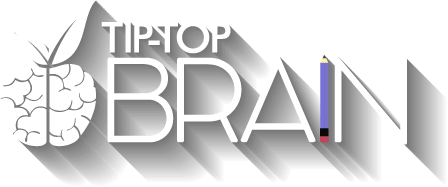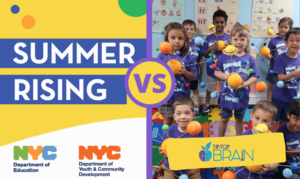Tutoring sounds too good to be true, right? There are many common myths about the efficacy and value of tutoring. Unfortunately, these myths can prevent parents from seeking additional academic support for their child, so I’ll try and dispel the most popular ones. But first, it’s important we work with a common understanding of what tutoring is. Tutoring, in the most general sense, is receiving additional academic support on class curricula or standardized tests, from an individual knowledgeable on the subject (more on how tutoring works here).
However, there is great variety in the mechanics of different tutoring programs, and as a result, an equally large range of student experiences. For some, tutoring means meeting with a homework group led by an older classmate, while for others, it means one-on-one sessions in the school library with a certified teacher. This variability in structure gives way to a host of different experiences which may explain how these myths arise. Moreover, all of these distinctions make clear the complexities involved in accurately assessing the value of tutoring programs.
Myth #1: Tutoring is for struggling students
Perhaps the most common misconception about tutoring is that the practice is reserved for students who are struggling. Oftentimes in movies or TV shows, tutoring is something you seek out when you’re failing a class or have a big test coming up. Unfortunately, this leads to some misleading notions of what tutoring is, and what it’s for.
First and foremost, you need not be struggling to start seeing a tutor. By all means, if you’re having a hard time in class, definitely seek out a tutor. However, receiving tutoring before you start struggling will save you weeks of head and heart ache. Establishing a relationship and routine with a tutor can take time, so putting in that work before important test dates is a worthwhile investment. Truthfully, tutoring offers something to everyone.
Myth #2: Tutoring is a substitute for studying
This myth is less often spoken aloud, but it’s all together just as relevant. Oftentimes, students feel as though they don’t need to study on days that they’ll be seeing their tutor. Although this may be an effective strategy for avoiding burnout, it is crucial that students recognize that tutoring is not a substitution for studying. Tutoring and studying are intentionally disjoint practices. Studying should be inherently independent, and ultimately, solo studying is the key to feeling competent and confident. Tutoring, on the other hand, is about a relationship between student and tutor. Although cliché, tutors can’t be with students when they take exams or do their homework, so it’s important that students study in order to practice academic work without outside help.
Myth #3 Tutoring is best in preparation for the ‘big exam’
Tutoring is for important test dates. I’m not sure how often this myth is actually uttered, but it seems as though many students wait until a scary test is on the horizon to seek out tutoring. Each year before Regents exams or the SHSAT, students and parents, like clockwork, make a mad dash for a tutor. Don’t get me wrong, it’s awesome to seek additional help preparing for these no-doubt-important exams. However, the idea that it must wait until a test appears to see a tutor is simply false. In the long run, if you want to see a boost in your exam scores you should see a tutor early and often.
Myth #4: Online tutoring is less effective than traditional methods
Okay, so the existence of this myth is purely speculative. Anecdotally, I’ve heard a lot of people question the efficacy of online classes vs. traditional in-person classes. It seems fair to assume that those skeptical of the efficacy of online classes would also be online tutoring. However, there is no proof that online classes or instruction is any less effective than traditional modes of instruction. Matter of fact, online instruction is just as effective, if not more effective, than traditional instruction.
It’s important to carefully consider all of the aspects of tutoring before committing to it. Reach out to friends and family members to learn about their experiences with tutoring, but also ask your child about who, what, when, and where tutoring has been most effective for them. While conducting your research, be sure to take testimonials with a grain of salt. Although not intentional, you might come across a myth or two. Ultimately, these misconceptions are based on some real-life experience, but more often than not, they’re merely anecdotes. Tutoring has pros and cons, but we should be sure to weigh only legitimate factors into our judgment on tutoring. And of course, don’t knock it till you try it.







